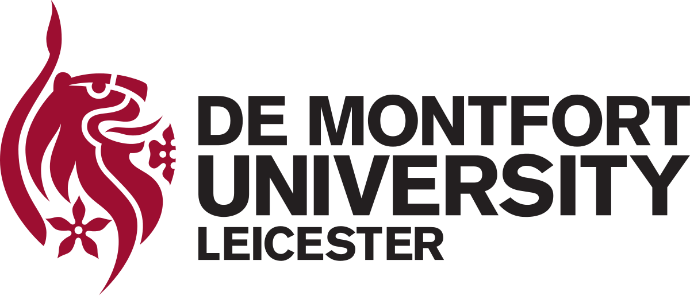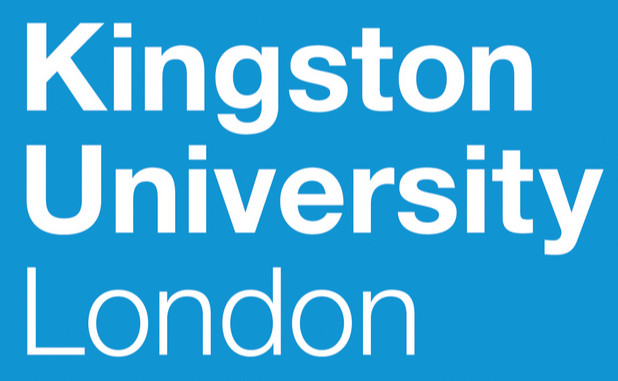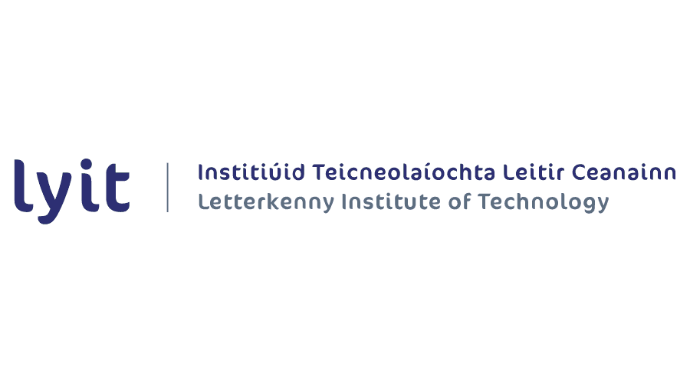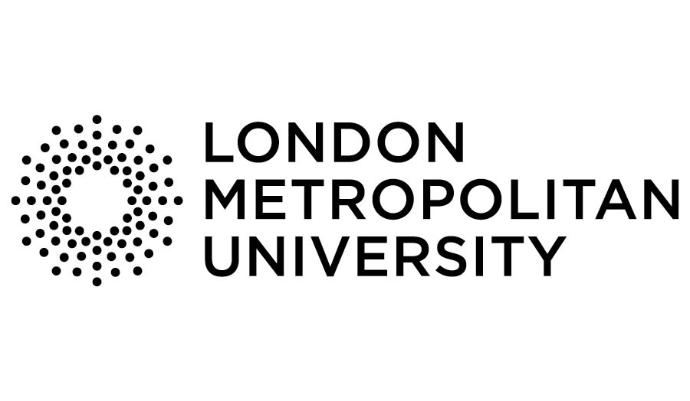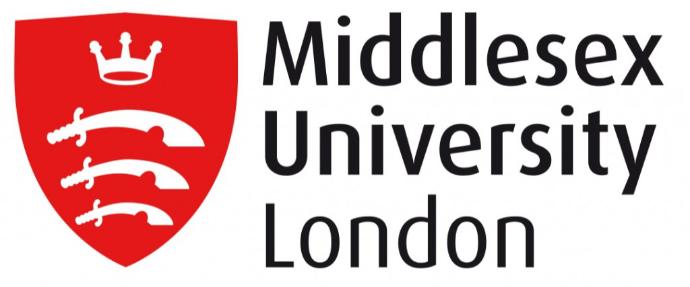The Level 4 Diploma in Business Technology (RQF) (L4DBIT) makes up the first year of the NCC Education degree journey. The qualification is equivalent to the first year of an IT degree in the UK university system. Students will be given the opportunity to develop essential thinking and study skills in IT and business through a balance of academic and vocational subjects. They will be able to contribute to the development of computer systems and networks, databases and websites in a business context, whilst also developing an awareness of business needs. The qualification will allow them to understand and enter the IT and business profession with the necessary knowledge expected within the industry and the ability to apply the skills to a range of IT-related functions.
On successful completion of the qualification students will be able to embark on NCC Education’s Level 5 Diploma in Business Information Technology (L5DBIT), which is equivalent to the second year of a UK Bachelor’s degree, transfer to a university or pursue a career in the IT industry.
Year 3 (Cambodia/Laos) / Year 2 (UK/AUS/NZ) / Junior Year (US/CAN)
The Level 5 Diploma in Business Information Technology (RQF) (L5DBIT) makes up the second year of the NCC Education degree journey and builds upon the knowledge gained during the NCC Education Level 4 Diploma in Business Information Technology (L4DBIT). Students will be exposed to more advanced topics in a range of areas including information systems analysis, database development and the principles of business operations. Students will study a balance of academic and vocational subjects in order to provide the necessary knowledge and skills to play a significant role in IT and business organisations.
On successful completion of the qualification, students will be able to complete the final year of a degree with the NCC Education Business Computing and Information Systems Top Up validated by the University of Central Lancashire (UCLan), the University of Greenwich Business Information Technology Top Up delivered at our Accredited Partner Centres, at one of the many universities that recognise NCC Education qualifications, or pursue a career in the IT industry.
Year 4 (Cambodia/Laos)/ Year 3 (UK/AUS/NZ) / Senior Year (US/CAN)
Bachelor of Science (Hons) in Business computing and Information Systems
The BSc (Hons) Business Computing and Information Systems, delivered online by NCC Education and validated and awarded by the University of Central Lancashire, has been designed to prepare students for employment in the IT sector. The qualification equips students with a blend of technical IT skills and business expertise that will prepare them for a career in senior management IT roles. The qualification units are designed to provide the fundamental skills and knowledge required by employers in the IT sector.
NCC Education Level 4 Diploma in Business Information Technology (L4DBIT)
Students must study the following eight core units:
- Skills for Computing – This module provides essential skills required by computing students. The skills taught include study, presentation, report-writing and data handling skills. It will prepare students for successful outcomes in their studies and provide them with skills that can be applied in the workplace.
- Computer Networks – This module helps students to develop a good understanding of basic theory and useful practical skills of networking and communication that are vital in today’s connected world.
- Computer Systems – This module addresses the development of practical skills in the configuration, maintenance, fault finding and trouble-shooting of modern computer systems and develops knowledge of computer architecture.
- Designing and Developing a Website – This module provides students with the practical skills required in website design such as understanding of markup languages, style sheets, design techniques and testing.
- Databases – This module provides students with thorough training in practical techniques for the design and development of database systems and develops a sound understanding of the underpinning theory.
- eBusiness – This module gives students the opportunity to examine how organisations can use all aspects of eBusiness to create new products and services, reduce the cost of existing business processes and improve the efficiency of their operations using typical revenue models.
- Essentials of Management – This module covers the principles and functions of management, teaching students the key elements in planning and decision making and the significance of different controls required in an organisation.
-
Understanding Business Organisations
-This module provides an introduction to the objectives, roles, functions and various forms of business organisation as they adapt to a dynamic and changing environment and also considers information and technology in regards to efficiency and performance.
NCC Education Level 5 Diploma in Business Information Technology (L5DBIT)
Students complete the following six core units
- Information Systems Analysis: This module equips students with a range of tools in order to analyse the function and requirements of information systems, as well as the skills to compare systems analysis models and to examine them in the wider context of the Internet and the social, economic and political climate of an organisation.
- Dynamic Websites: This module builds on existing knowledge of both databases and web design in order to build dynamic websites and also equips students with a range of skills to present content on the World Wide Web.
- Database Design and Development: This module allows students to develop skills in the design and development of databases and database management systems, as well as investigating enterprise applications of databases.
- Business IT Project: This module provides students with the opportunity to gain practical experience in developing system solutions to open-ended problems derived from the real world.
- Information Systems and Organisations: This module introduces students to the subject of information systems and technology in organisations, taking a broad perspective on how it can be managed effectively within the organisational context. Students will be able to demonstrate an appreciation of the role of information systems in the modem organisation, including the management of social, cultural and political aspects that are important to the successful adoption of technology.
- Principles of Business Operations: This module helps students to appreciate and understand business operations in both the manufacturing and services sectors. It will cover the basic principles of operations within a global context from three key perspectives: understanding operations, designing operations and managing operations.
Year 4 (KH/LA) / Year 3 (UK/AUS/NZ) / Senior Year (US/CAN)
Bachelor of Science (Hons) in Business Computing and Information Systems
The qualification is made up of four 20-credit units and a project unit which accounts for 40 credits.
When taken full-time , the qualification is delivered in two 15-week semesters (12 teaching weeks). Two units are studied in each semester, with the project being studied over two semesters. Full-time students should spend between 30 – 40 hours per week on their studies.
Units comprise of weekly video lectures, tutorial exercises and live chat sessions with subject experts. Students will have the opportunity to interact with other students from around the world and with subject experts through discussion forums.
Modules include:
- Advanced Database Management Systems
- Corporate Communication Systems Management
- eBusiness
- Managing Information Systems Projects
- Information Systems Project
NCC Education Level 4 Diploma in Business Information Technology (L4DBIT)
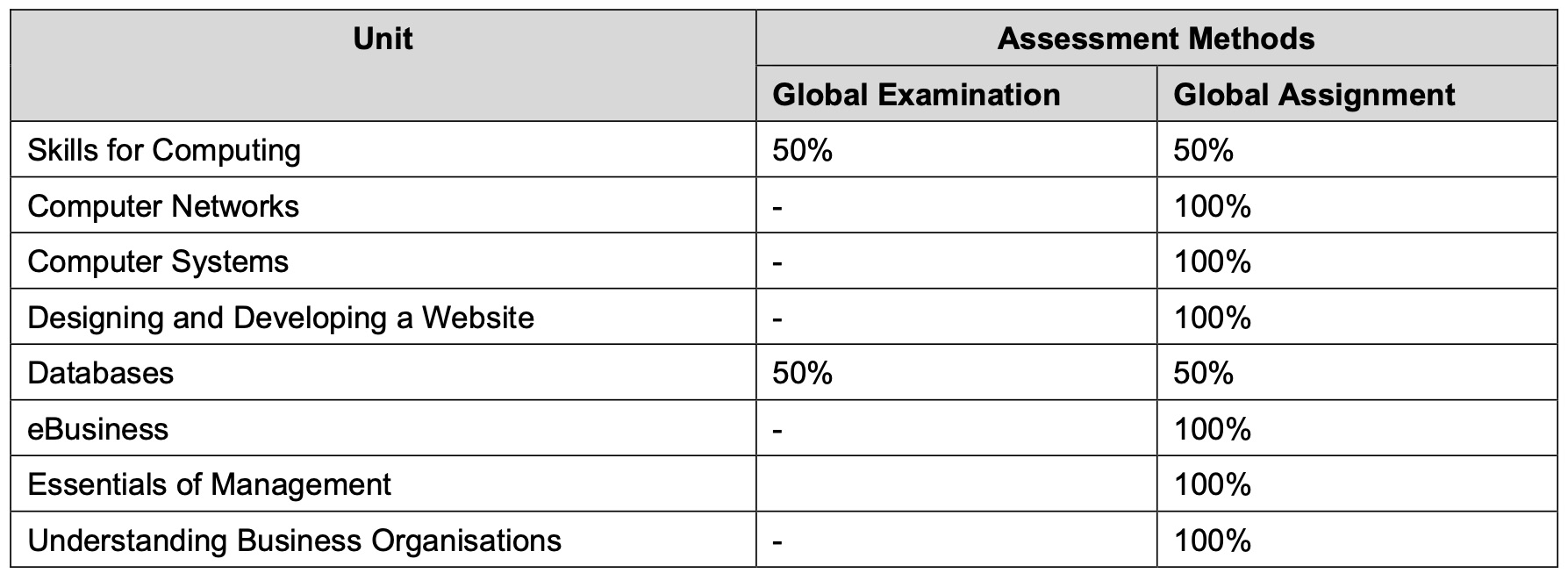
Note: Assessments for all modules are offered in a number of assessment cycles throughout the year. Modules are assessed by both examination and coursework assignments.

Year 3 (Cambodia/Laos) / Year 2 (UK/AUS/NZ) / Junior Year (US/CAN)
NCC Education Level 5 Diploma in Business Information Technology (L5DBIT)
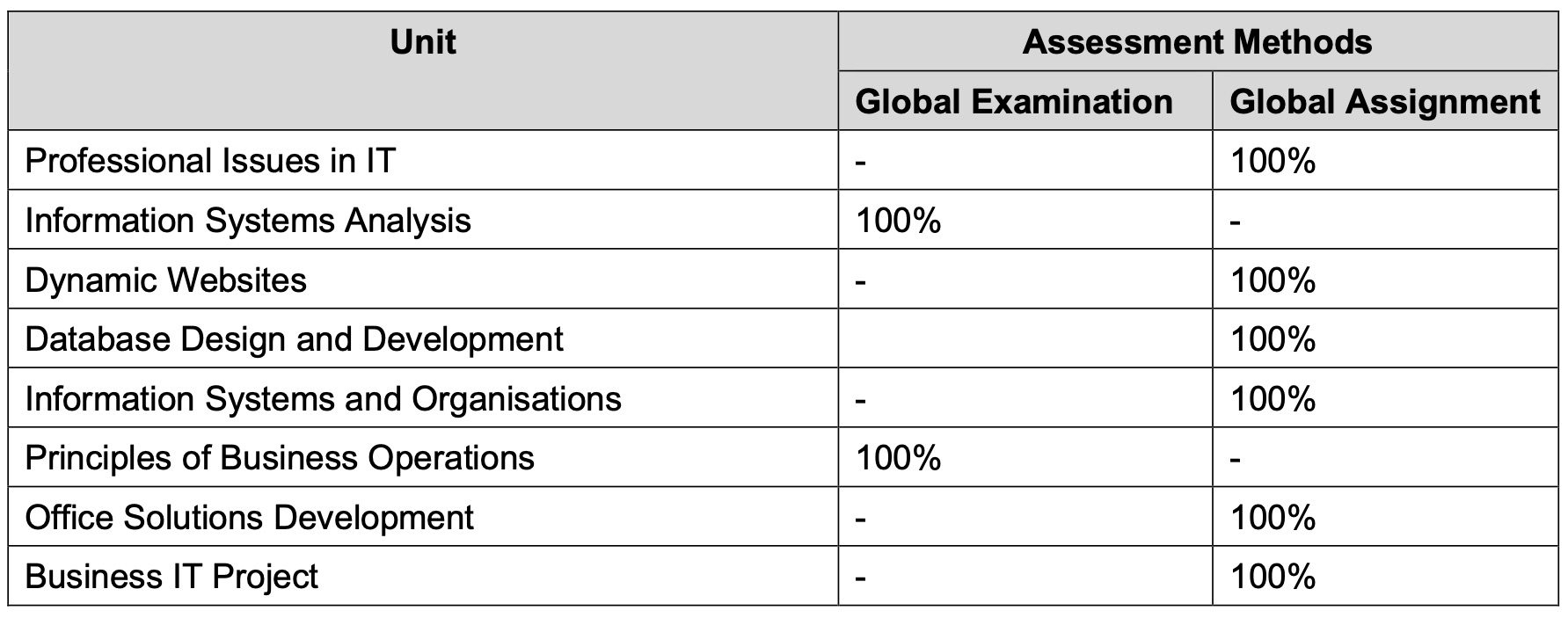
Note: Assessments for all modules are offered in a number of assessment cycles throughout the year. Modules are assessed by both examination and coursework assignments.
Year 4 (Cambodia/Laos) / Year 3 (UK/AUS/NZ) / Senior Year (US/CAN)
Bachelor of Sciences (Hons) in Business Computing and Information Systems
Assessment is through examination and coursework assignments (run by university partner).
- Completion of high school with GPA at least 2.0 to 3.0 from an international school
- International Baccalaureate
- 1 GCE 'A' Level pass
- Level 2 International Foundation Diploma for Higher Education Studies (awarded by NCC Education)
- Other international secondary or post-secondary qualification will be considered individually.
English Language:
BSc/BA applicants are required to pass Cambridge placement test at level B1 and an oral part with speaking task.
If the applicant has a certificate of
- Cambridge English B1 preliminary certificate
- The International English Language Testing System (IELTS Academic) with a minimum overall score of 5.5
- The Test of English as a Foreign Language (TOEFL) with a minimum score of 70 in the iBT version
- International GCSE English as a Second Language with a score of C or higher on extended curriculum
- A B2 level English language certificate
- Previous studies in English
- Native speaker of English (based on passport citizenship)
|
Abertay University
De Montfort University Leicester Deakin University Glasgow Caledonian University Kingston University London Letterkenny Institute of Technology London Metropolitan University Middlesex University London Nottingham Trent University |
Southern Cross University
Unitec Institute of Technology University of Central Lancashire University of Greenwich University of Northampton University of the West of England, Bristol University of Worcester |
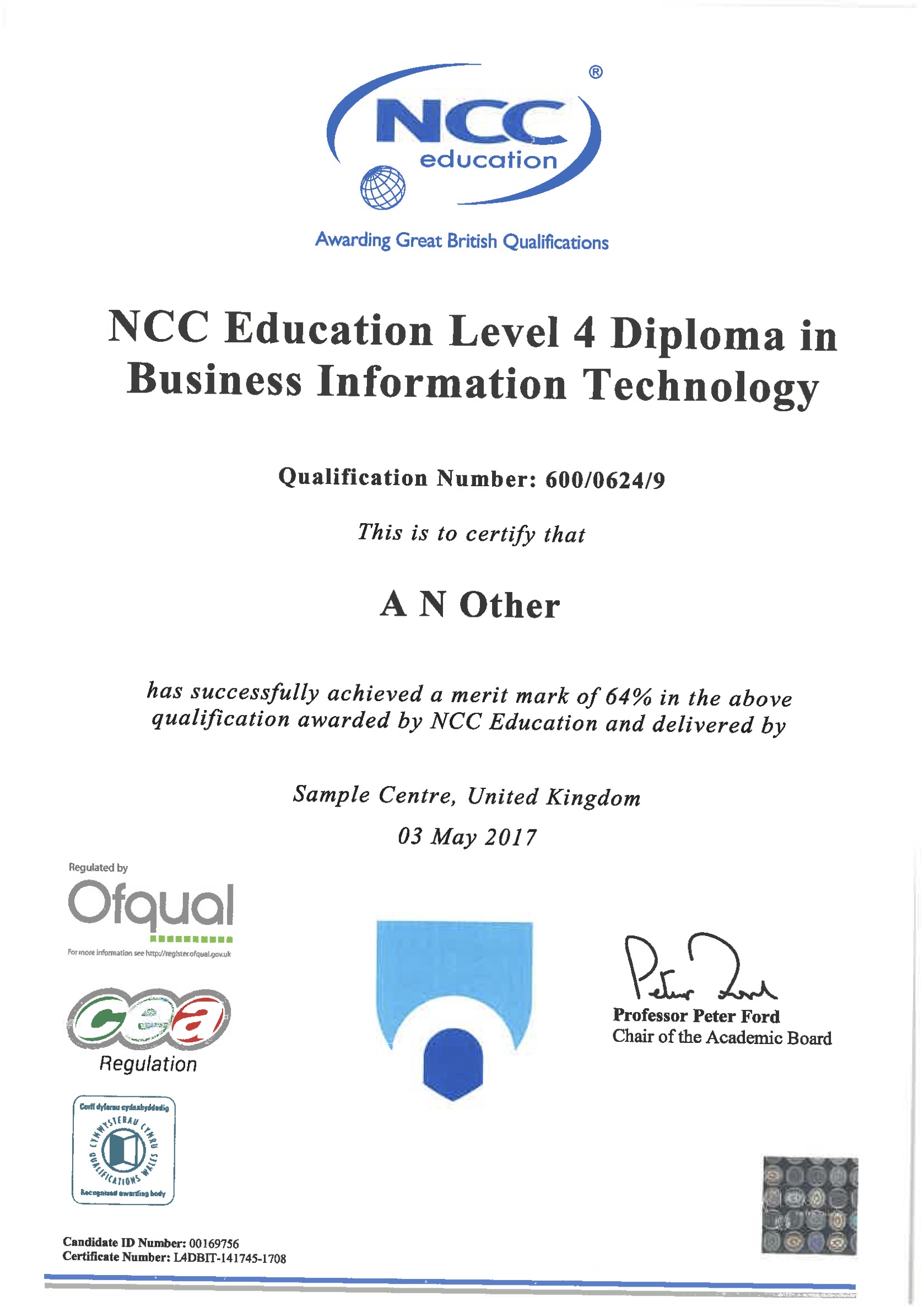
Year 3 (KH/LA) / Year 2 (UK/AUS/NZ) / Junior Year (US/CAN)
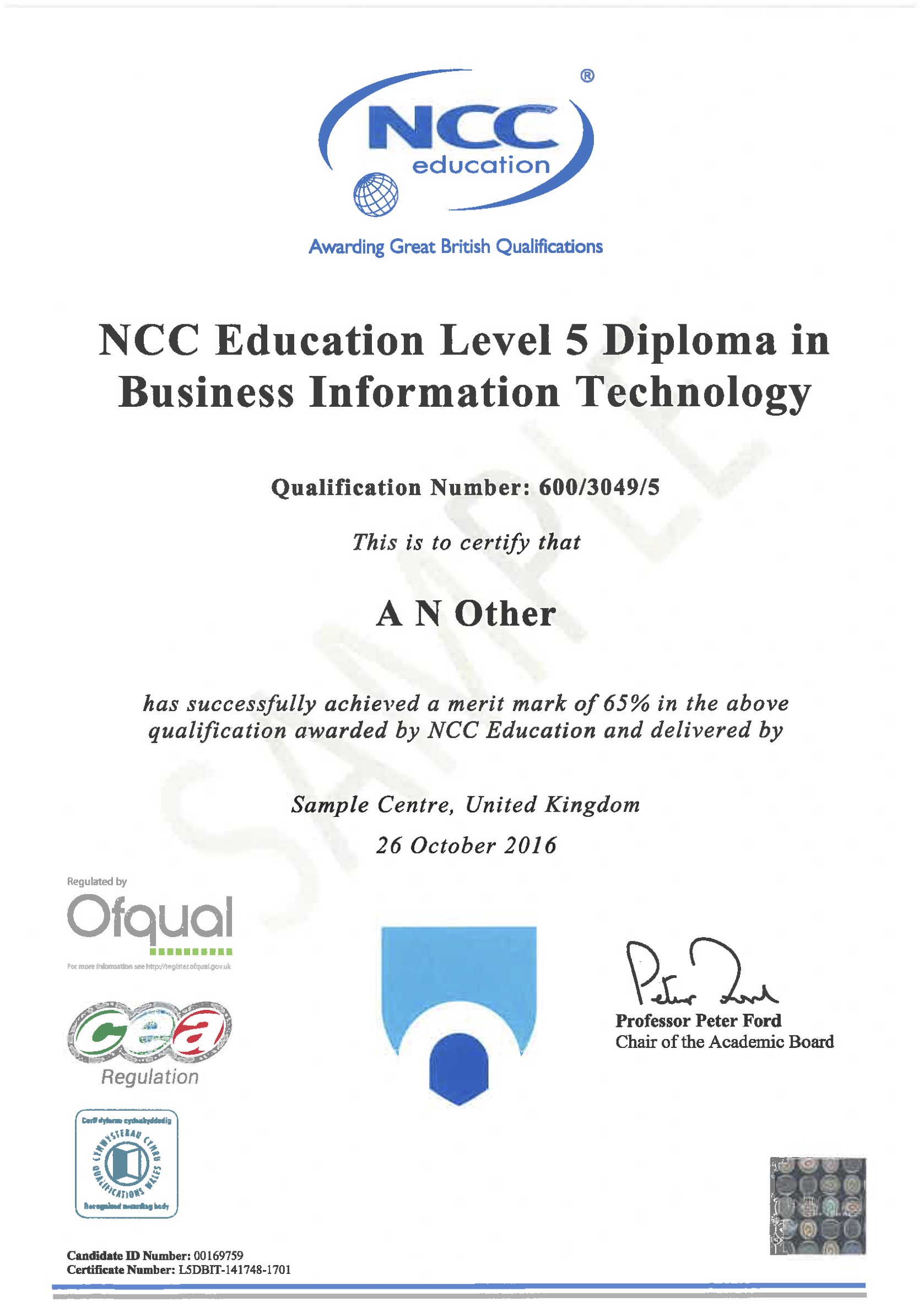
Year 4 (Cambodia/Laos)/ Year 3 (UK/AUS/NZ) / Senior Year (US/CAN)
Bachelor of Science (Hons) Business Computing and Information System (Delivery online)
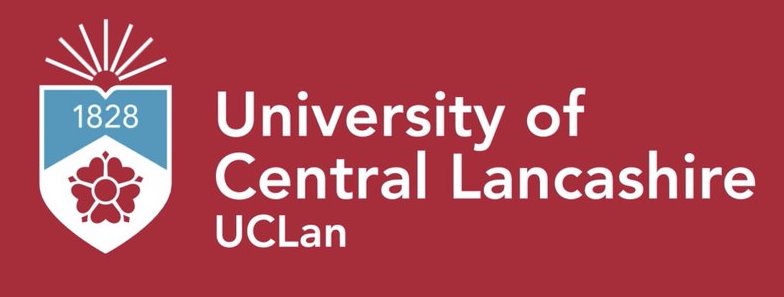
of technology throughout the business world means that companies in many industries are hiring grads of computer science programs.
- Data scientist
- Software tester
- Web developer
- Systems analyst
- Business analyst
- Product manager
- Network architect
- Software engineer
- Software developer
- Full-stack developer
- Engineering manager
- User interface designer
- Database administrator
- Cloud computing engineer
- Information security analyst
- Computer science professor
- Chief information security officer
- Software quality assurance manager
- Information technology specialist
- Mobile application designer or developer
- Research and development (R&D) scientist
- Computer scientist or computer science researcher
- Artificial intelligence and machine learning engineer
An excellent study programme and an access to study the British qualification locally or progressing to top up programme in the UK, US, Australia, New Zealand, and Canada at a SpringBoard College | International will provide you with opportunities for your entire career path.
The investment in your future is worth it.
More information about fees and funding, how to make payment, bursary. . .
Click here

